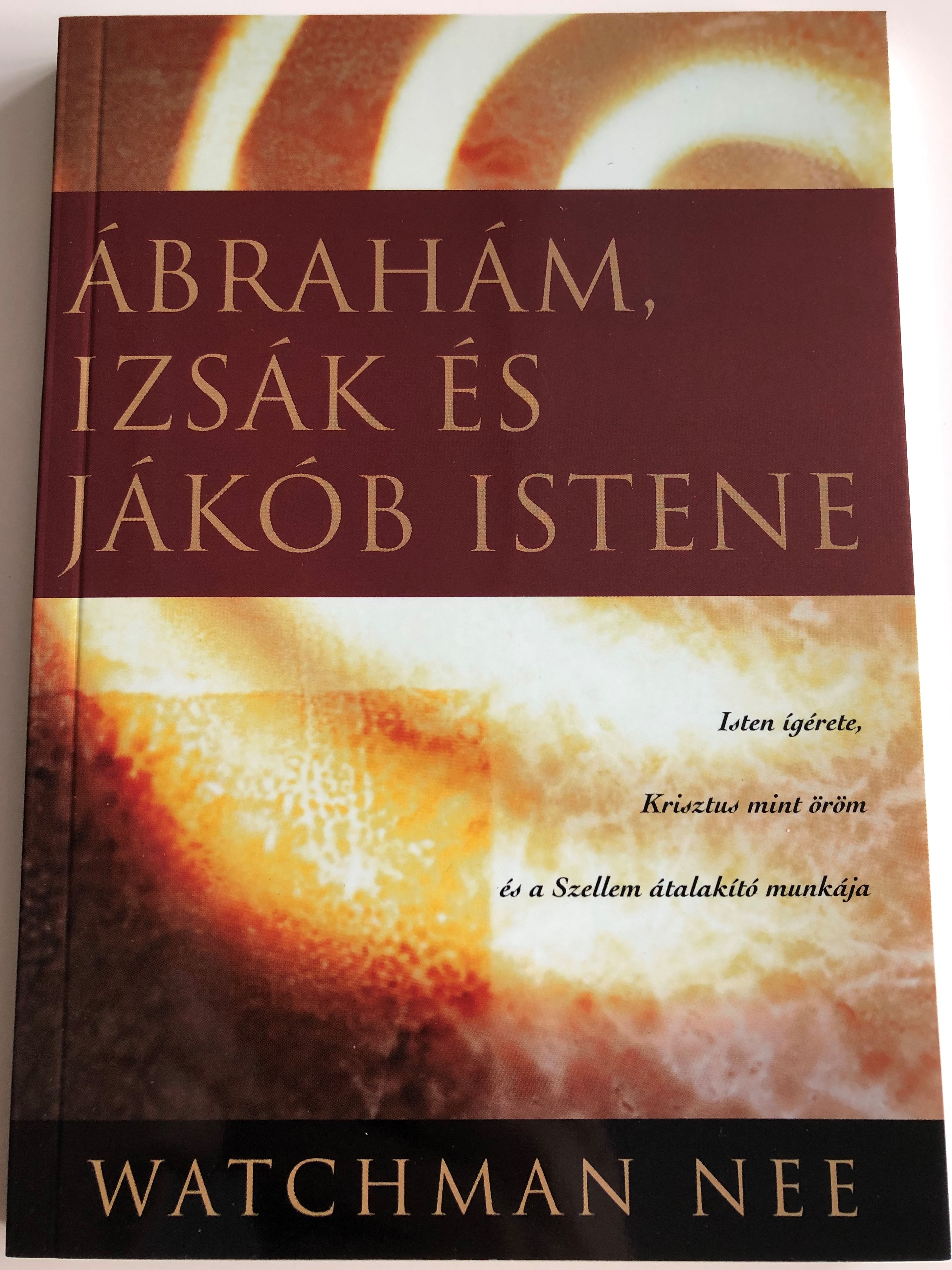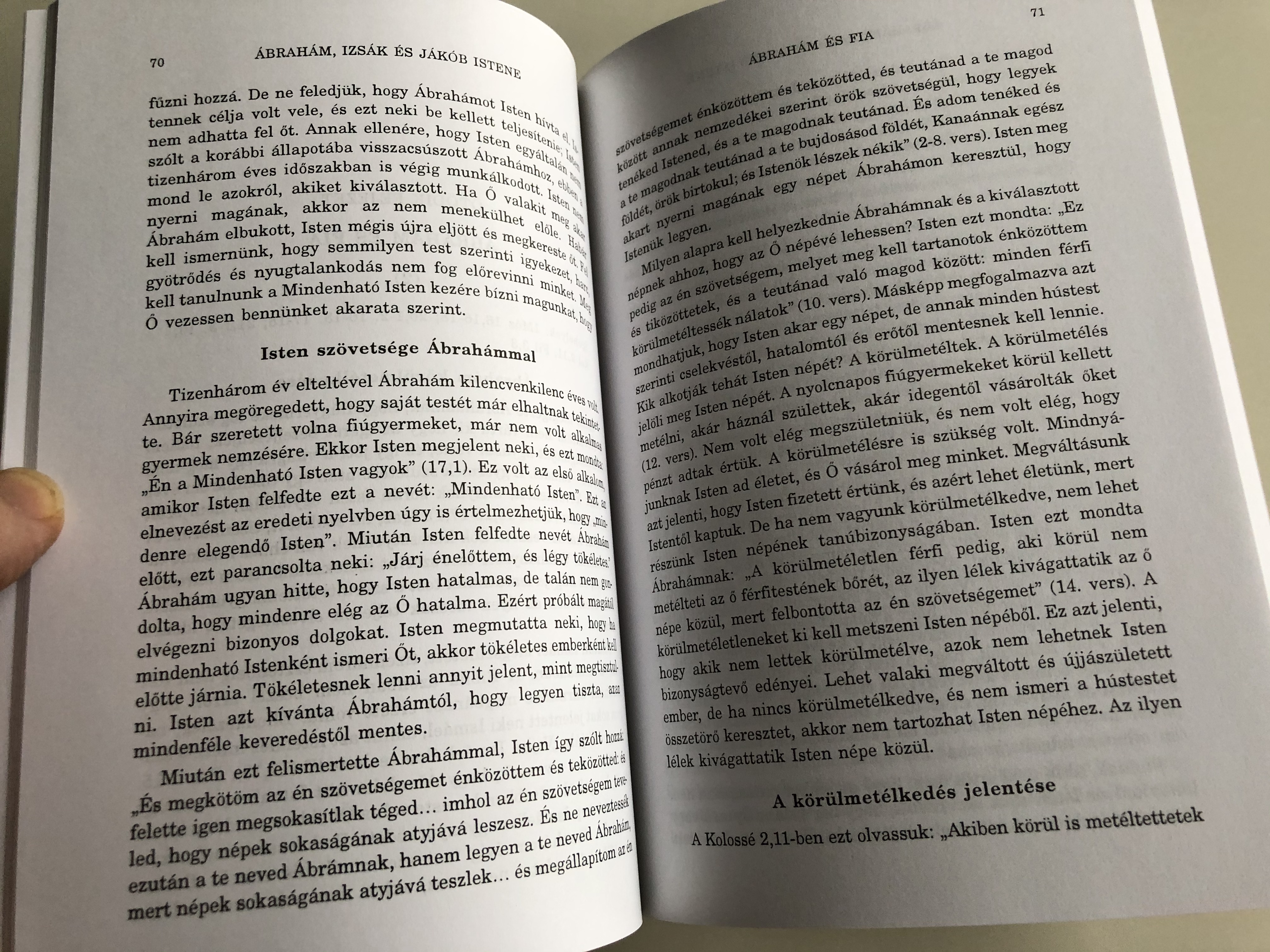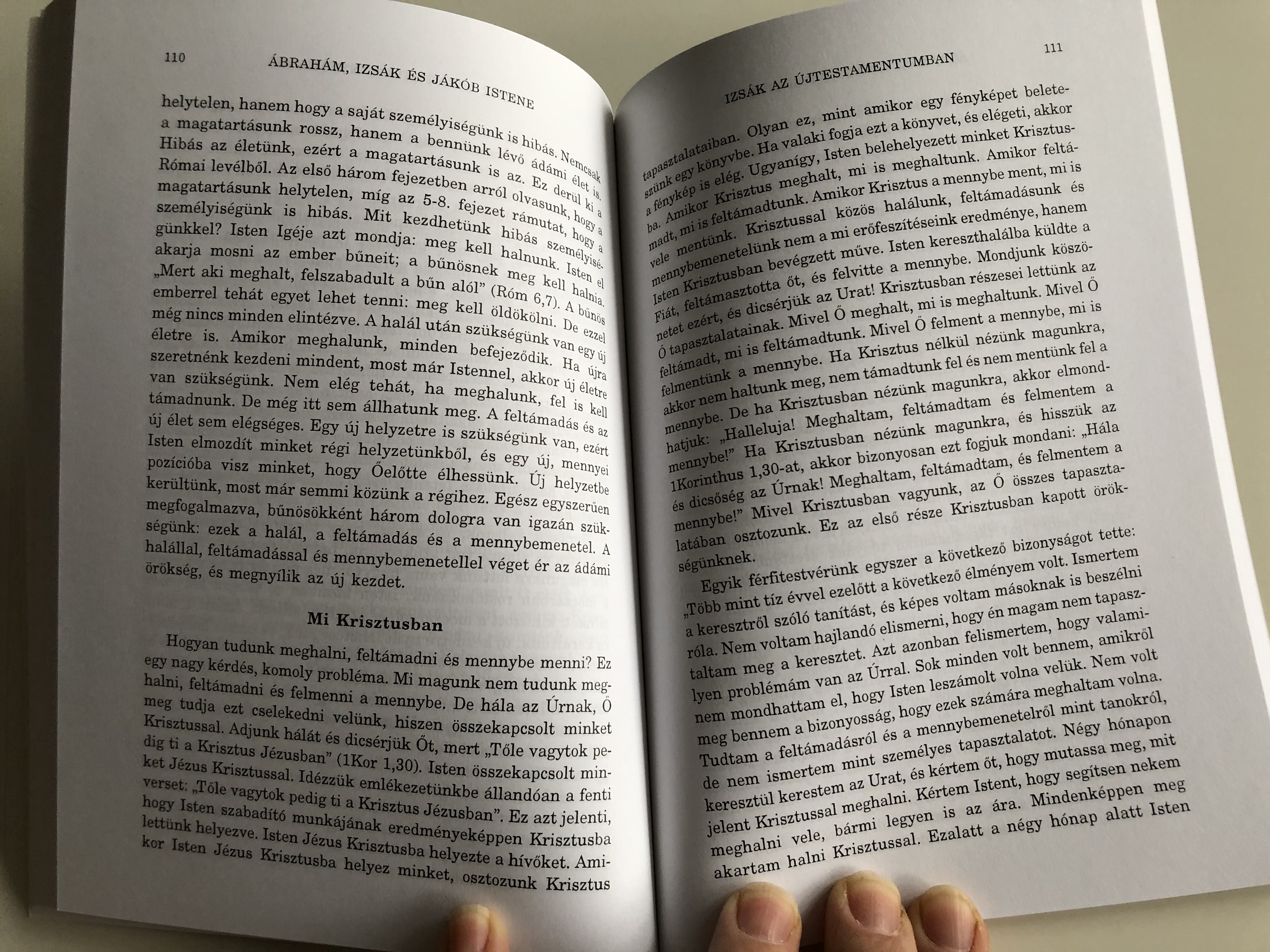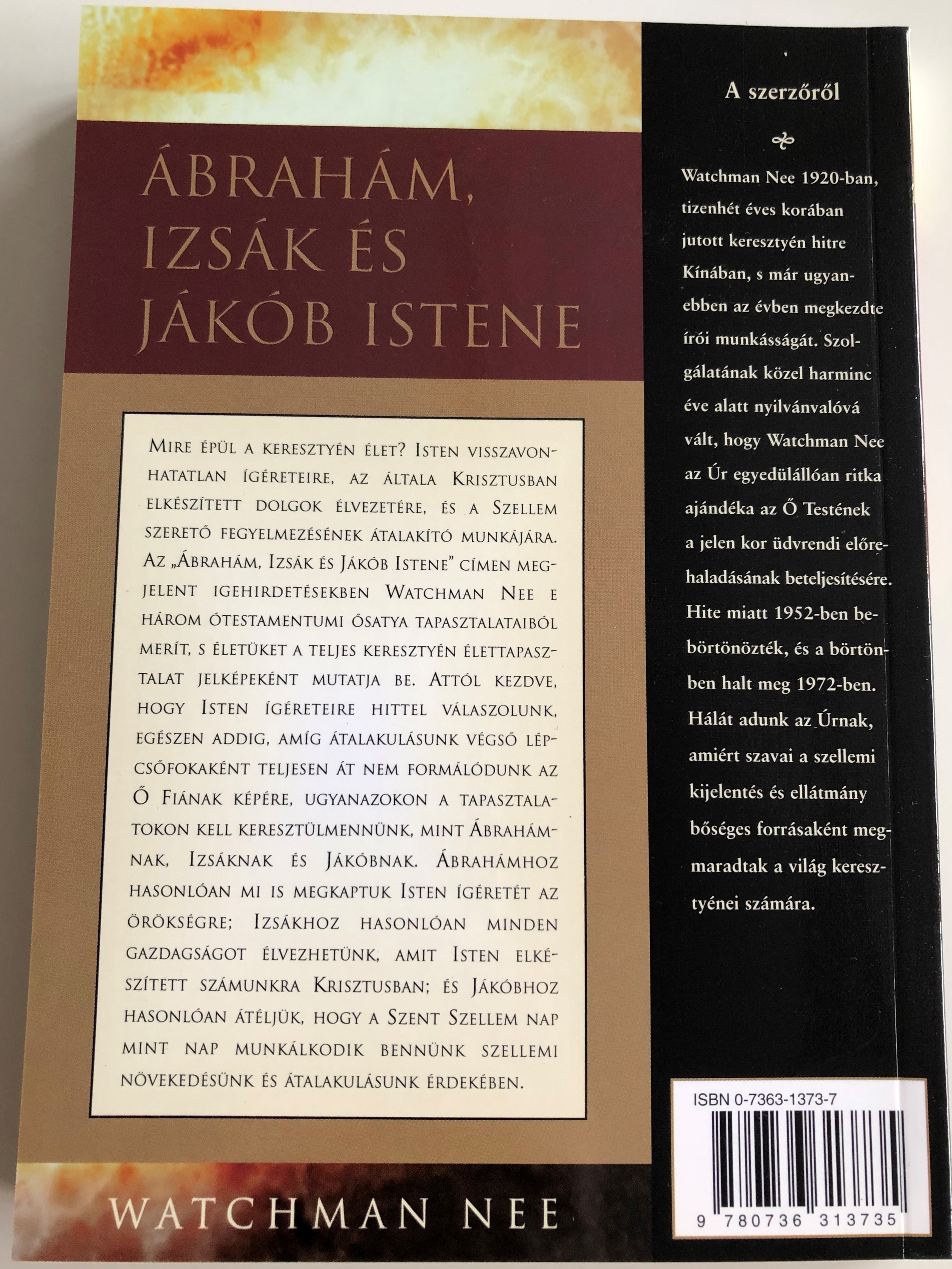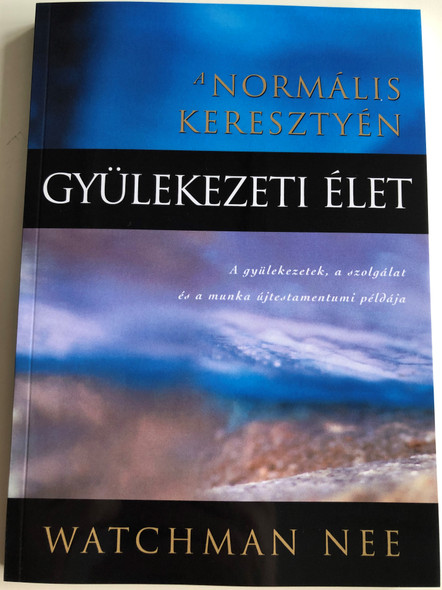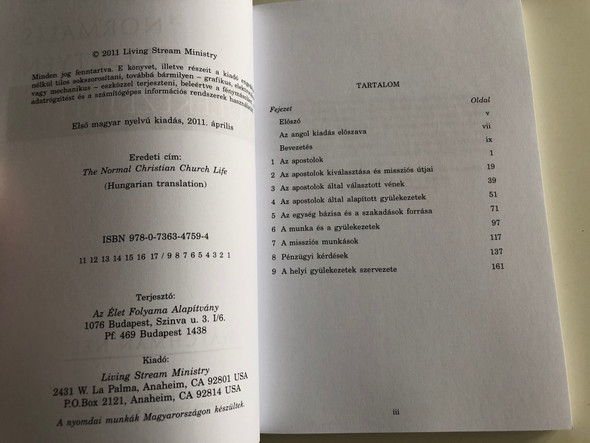Description
Ábrahám, Izsák és Jákób Istene by Watchman Nee / Hungarian translation of The God of Abraham, Isaac and Jacob / Isten ígérete, Krisztus mint öröm és a Szellem átalakító munkája / Living Stream Ministry 2001 / Az Élet Folyama Alapítvány
Paperback 2001
ISBN-10: 0736313737
ISBN: 9780736313735 / 978-0736313735
PAGES: 186
PUBLISHER: Living Stream Ministry
LANGUAGE: HUNGARIAN / MAGYAR
About the Author:
Watchman Nee, Ni Tuosheng, or Nee T'o-sheng (Chinese: 倪柝聲; pinyin: Ní Tuòshēng; November 4, 1903 – May 30, 1972), was a Chinese church leader and Christian teacher who worked in China during the 20th century. In 1922, he initiated church meetings in Fuzhou that may be considered the beginning of the local churches. During his thirty years of ministry, Nee published many books expounding the Bible. He established churches throughout China and held many conferences to train Bible students and church workers. Following the Communist Revolution, Nee was persecuted and imprisoned for his faith and spent the last twenty years of his life in prison.
English Summary:
All the above is not enough to reveal Jacob's shining brightness. From this point on, Jacob became shining. When his sons returned from Egypt the second time and told him, "Joseph is yet alive, and he is governor over all the land of Egypt," Jacob's heart fainted because he did not believe them (Gen. 45:26). Later when he saw the wagons which Joseph had sent to carry him, his spirit revived, and "Israel said, It is enough; Joseph my son is yet alive: I will go and see him before I die" (v. 28). We need to note when the Bible calls him Jacob and when it calls him Israel. He was already a tender person. If he had been the Jacob of twenty or forty years earlier, he probably would have severely scolded his sons under such circumstances. He might have said, "Why have you cheated me for so long?" But he only said, "It is enough;...I will go and see him before I die." Here we touch gentleness, maturity, and a character refined by fire. Within Jacob there was the constitution of the Holy Spirit which could not be found in the former Jacob.
Although Jacob said, "I will go and see him," a question rose up within him. It seems as if he was asking, "Can I really go down to Egypt? Can I truly go down to Egypt for Joseph's sake? My grandfather, Abraham, sinned while going down to Egypt. He was reproached and he returned. My father Isaac wanted to go down to Egypt when he met famine, but God appeared and warned him that he should not go down to Egypt. He obeyed God's commandment, and God blessed him. Now can I, who have inherited the promises of Abraham and Isaac, go down to Egypt because of Joseph? Joseph is my beloved, and he is governor over Egypt and cannot come to me, but is this natural tie of father and son enough reason for me to go down to Egypt? If I go down to Egypt, what will happen to God's commandment? What will happen to God's promises? What will become of this land, God's inheritance? Will this lineage be frustrated if I go down to Egypt? How will the line of Abraham and Isaac be consummated?" This was a problem. Jacob was afraid to be wrong in himself. Therefore, when he came to Beer-sheba, he stopped and offered sacrifices to God (Gen. 46:1).
For the first time, Jacob shone more brightly than he ever did before. When he sent Benjamin to Joseph, he said, "God Almighty give you mercy before the man, that he may send away your other brother, and Benjamin." This revealed a condition in him that had not been present before. Now he thought of God's promises, God's plan, God's inheritance, and God's covenant. He became fearful; therefore, he rose up unto Beer-sheba "and offered sacrifices unto the God of his father Isaac." This shows that he was entirely different from before. He offered sacrifices and seemed to say to God, "I am here to serve You; all that I have is on the altar. It is fine with me whether I go or not. This is the position that I am standing on before You." If we look at what God said to him in the following passage, we can know Jacob's feeling at the time. "And God spake unto Israel in the visions of the night, and said, Jacob, Jacob. And he said, Here am I. And he said, I am God, the God of thy father: fear not to go down into Egypt" (vv. 2-3). This proves that Jacob was fearful. Thank God, this fearfulness reveals what God had done in him. Jacob's concern about whether or not he could go down to Egypt for the sake of Joseph shows that he had attained what Abraham and Isaac had not attained. Abraham went down to Egypt on his own when he faced famine. Isaac also wanted to go down to Egypt when he met famine, but fortunately God stopped him. But here was a man whom God did not stop. Jacob stopped halfway by himself. He thought of God's promises and God's covenant and became fearful. What should he do? He could do only one thing: offer up sacrifices to God. The altar was the place for him. He waited until God said to him, "Fear not to go down into Egypt; for I will there make of thee a great nation. I will go down with thee into Egypt; and I will also surely bring thee up again." At that word he dared to rise up from Beer-sheba. This was the constitution of the Holy Spirit! He was another person, totally different from what he had been before. Inside this person was the constitution, establishment, and testimony of the Spirit.
Hungarian Summary:
Mire épül a keresztyén élet? Isten visszavonhatatlan ígéreteire, az általa Krisztusban elkészített dolgok élvezetére, és a Szellem szerető fegyelmezésének átalakító munkájára. Az „Ábrahám, Izsák és Jákób Istene” címen megjelent igehirdetésekben Watchman Nee e három ótestamentumi ősatya tapasztalataiból merít, s életüket a teljes keresztyén élettapasztalat jelképeként mutatja be. Attól kezdve, hogy Isten ígéreteire hittel válaszolunk, egészen addig, amíg átalakulásunk végső lépcsőfokaként teljesen át nem formálódunk az Ő Fiának képére, ugyanazokon a tapasztalatokon kell keresztülmennünk, mint Ábrahámnak, Izsáknak és Jákóbnak.
